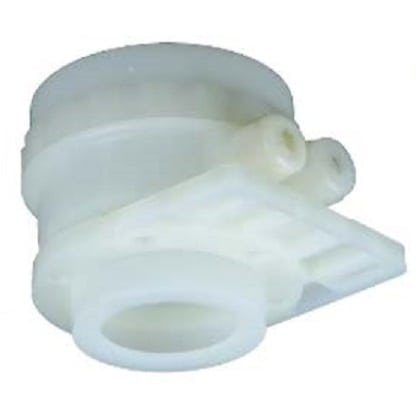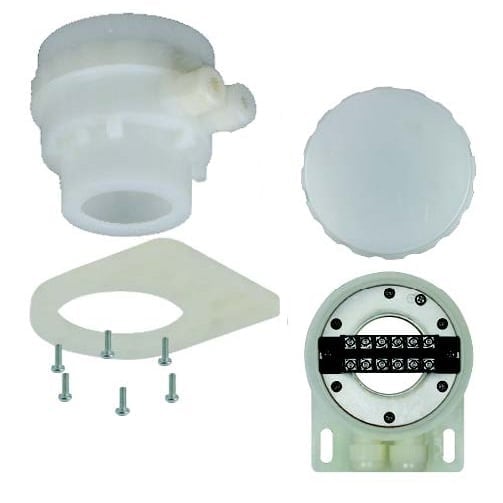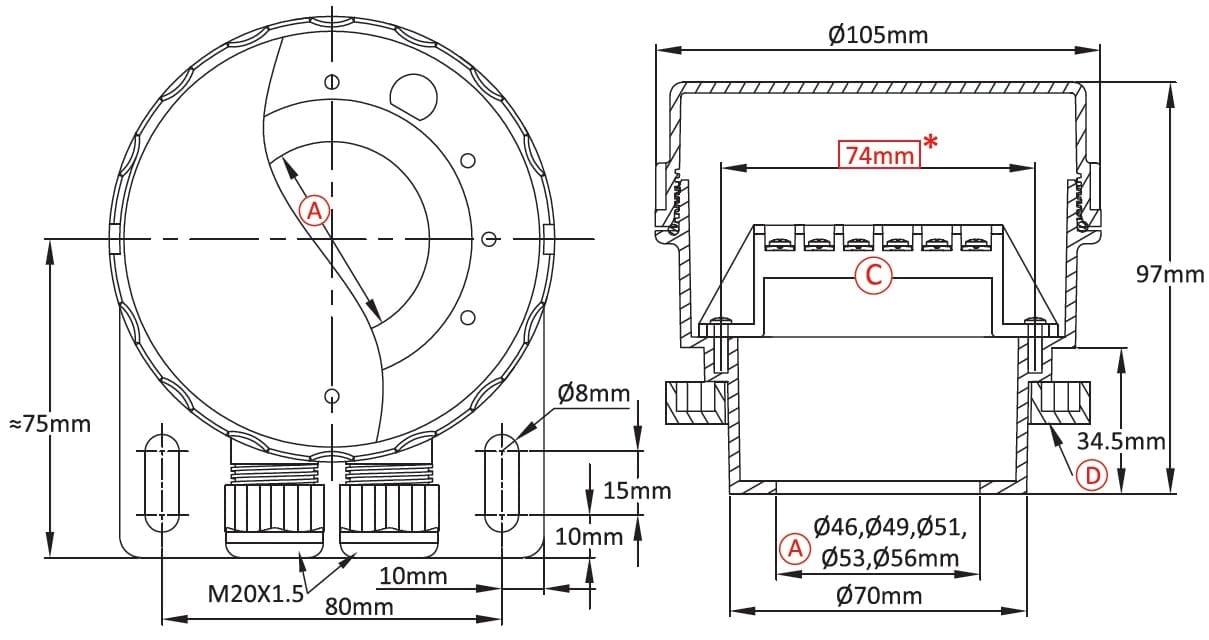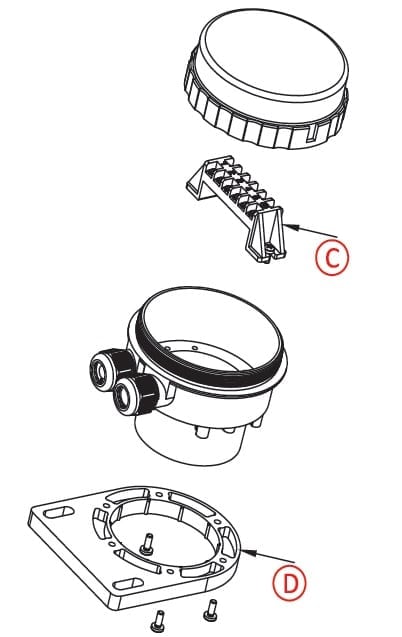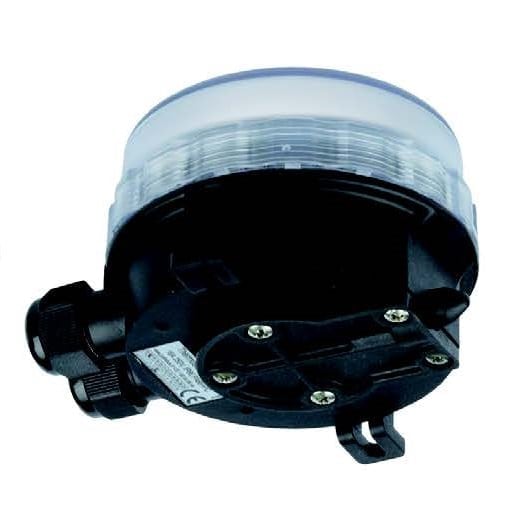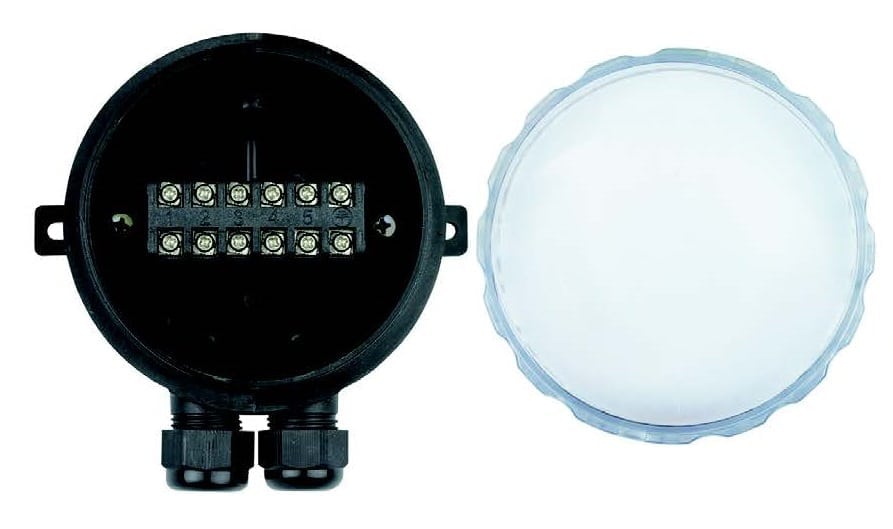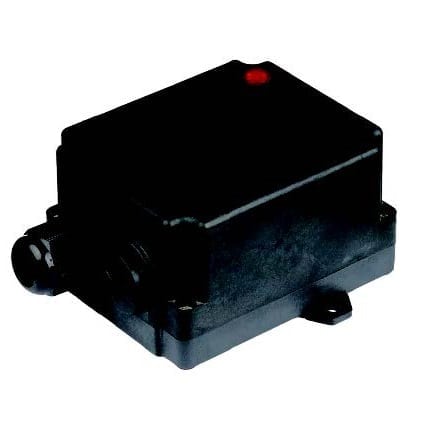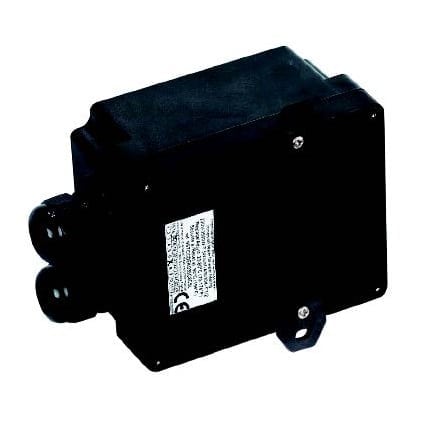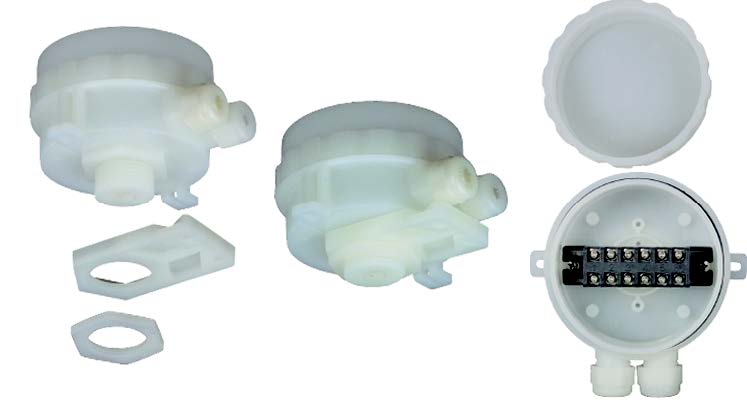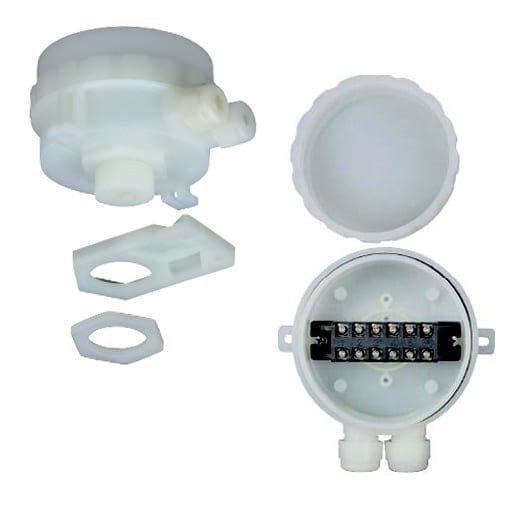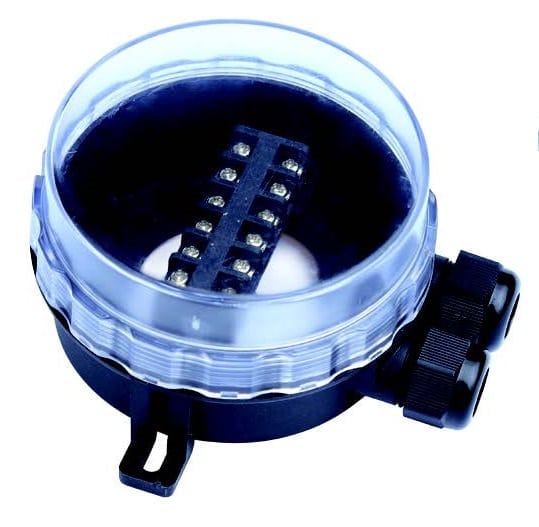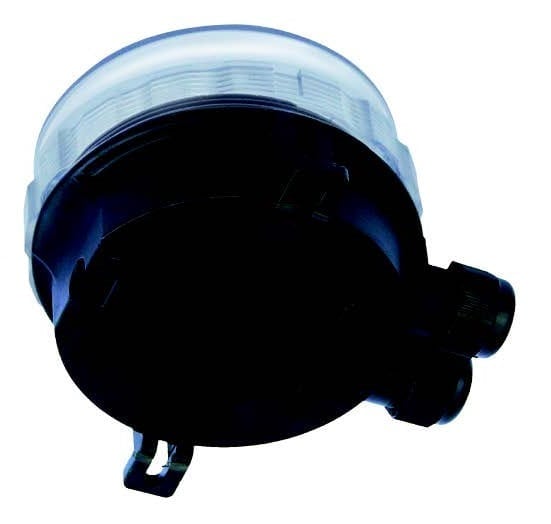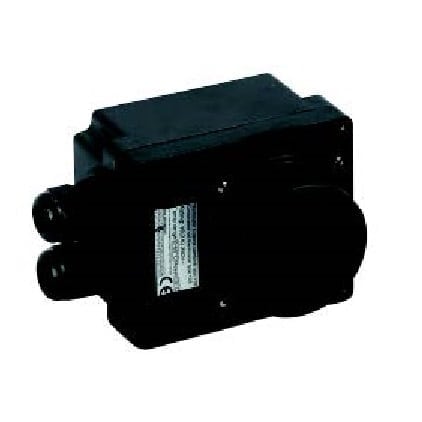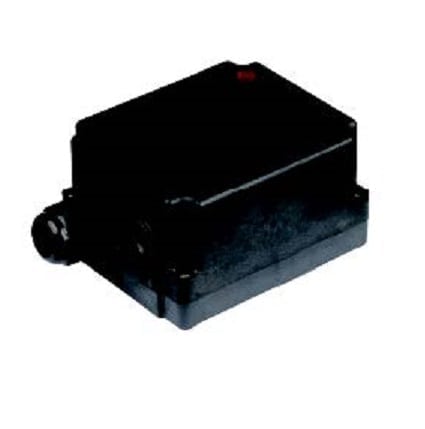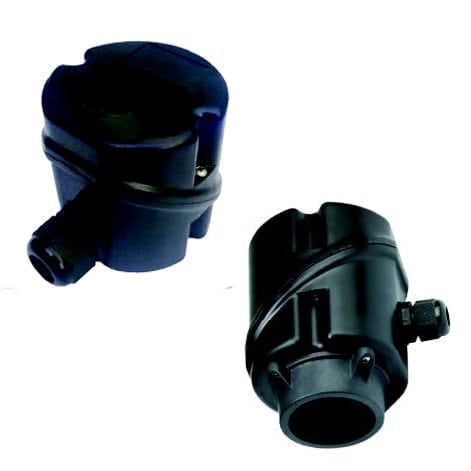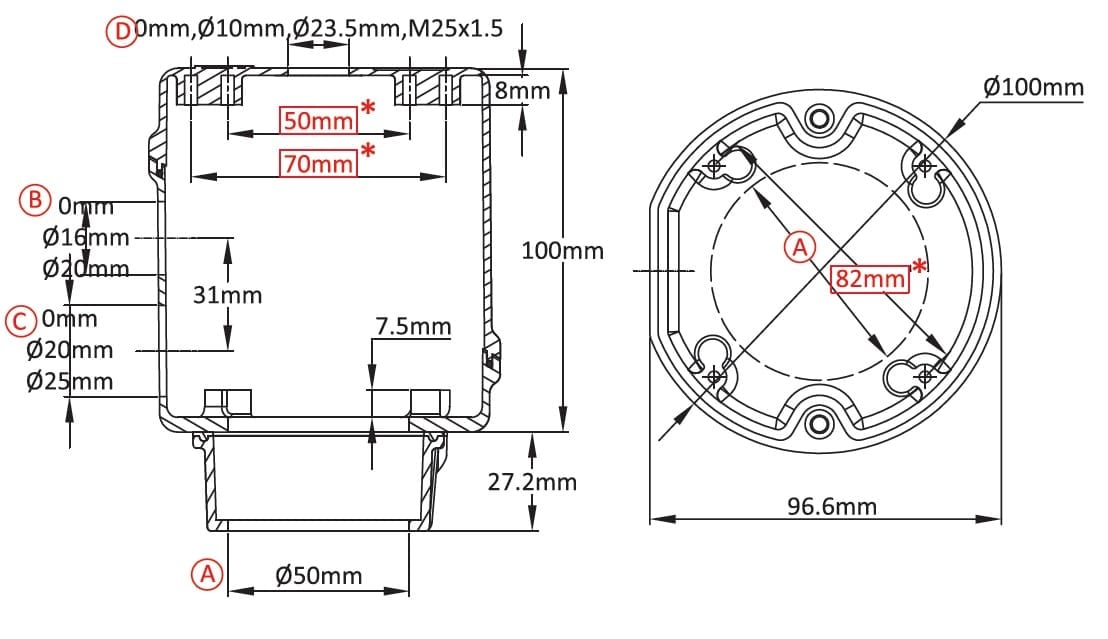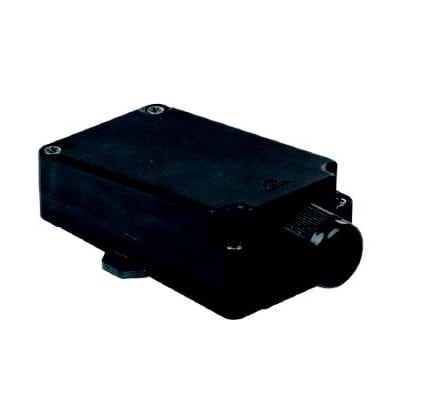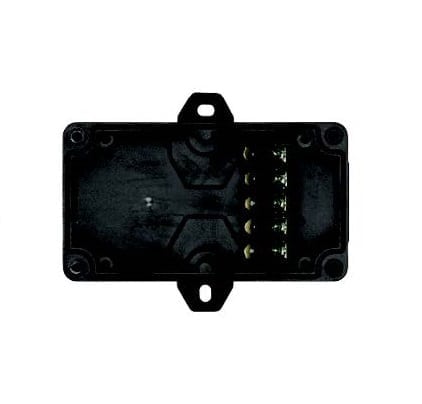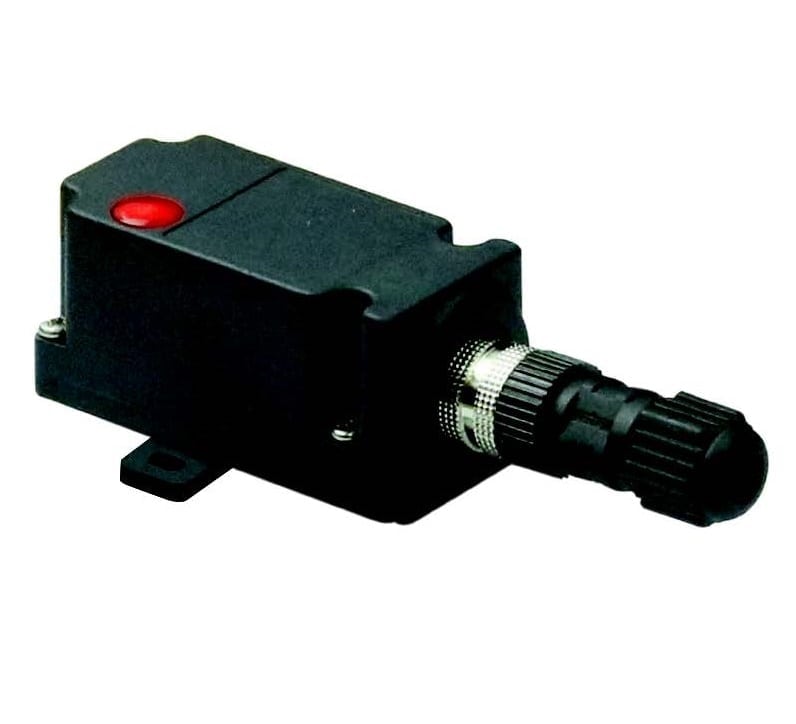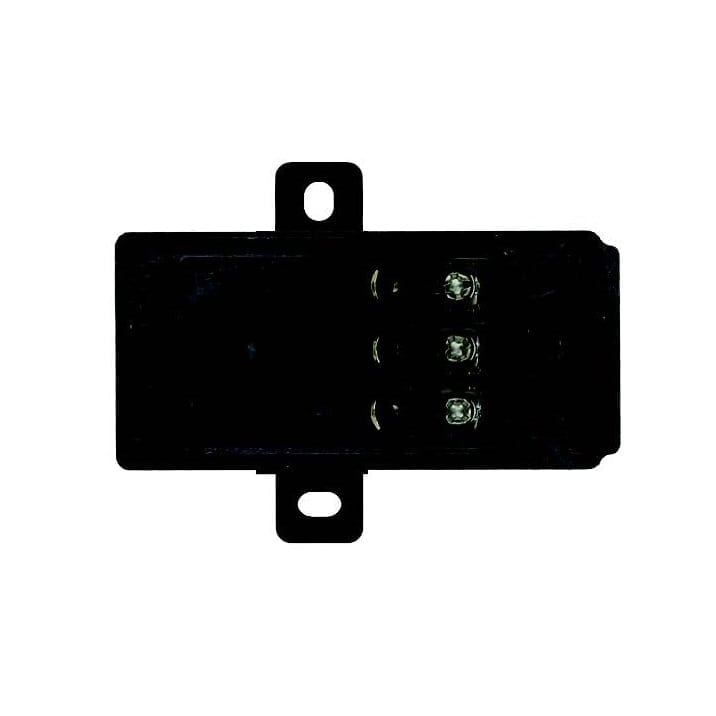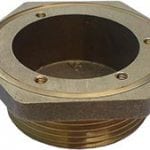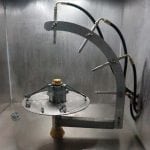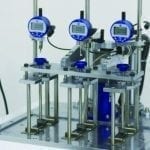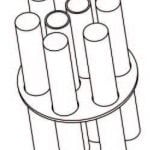PVDF immersion heater enclosure for highly corrosive environments, Y3E7
Screws: There is no external screw in this housing.
Cover: Screwed cover, with Molded FKM (Viton) fluoroelastomeric polymer, silicone or NBR O-ring gasket. Cover can be tightened by hand or with a double hook wrench.
| Dimensions | 105 × 105 × 95 mm |
|---|---|
| Housing raw material | |
| Ingress protection | |
| Volume (cm³) |
Red dimensions inside rectangular frames on drawings are used for accessories assembly.
Material: PVDF (white)
Screws: There is no external screw in this housing.
Cover: Screwed cover, with Molded FKM (Viton) fluoroelastomeric polymer, silicone or NBR O-ring gasket. Cover can be tightened by hand or with a double hook wrench.
Cable glands: 2 cable glands M20; The cable gland body is molded in the bottom, to avoid leaks. Cable gland nuts are molded in the same material than the bottom. Cable gland gaskets are molded in silicone, NBR or FKM (Viton) fluoroelastomer. (This material is named FKM upon ASTM standard and FPM upon DIN/ISO)
Temperature resistance:
- White PVDF body with opaque white PVDF cover: For use in liquid baths at temperatures above 90 °C and up to 110°C or strong oxidizing chemicals such as chrome electrolyte or nitric acid solution (HNO3). Reduced mechanical strength (IK10).
Accessory mountings : Inside the enclosure, there are two M4 threaded holes, 74mm distance,which can be used for mounting the BE6E6000000MP000 terminal block.
Tank side mounting: can be made with the polypropylene or PVDF flange (ref: 66Y3C6B1001Q or 66Y3C6B1001R). The enclosure is slightly forced into the flange. It is possible to secure it by using the 6 titanium screws which are provided.
Instrumentation: These enclosures may receive, in addition to heating elements, the same options for temperature control or temperature measurement than the YF5 series, provided that the ceramic body of the coiled heater has a central hole for the passage of the measuring elements, and has also a non-heating zone at its bottom to place the probe or the bulb. For more information, contact our technical department.
Main references
| A (mm) | D | with connection block B | without connection block B |
| 46 | √ | Y3E7460022BH40TT | Y3E7460022B000TT |
| 46 | × | Y3E7460022BH400T | Y3E7460022B0000T |
| 49 | √ | Y3E7490022BH40TT | Y3E7490022B000TT |
| 49 | × | Y3E7490022BH400T | Y3E7490022B0000T |
| 51 | √ | Y3E7510022BH40TT | Y3E7510022B000TT |
| 51 | × | Y3E7510022BH400T | Y3E7510022B0000T |
| 53 | √ | Y3E7530022BH40TT | Y3E7530022B000TT |
| 53 | × | Y3E7530022BH400T | Y3E7530022B0000T |
| 56 | √ | Y3E7560022BH40TT | Y3E7560022B000TT |
| 56 | × | Y3E7560022BH400T | Y3E7560022B0000T |
Accessories
| PA66, 6 ways connection block | Double hook wrench for lid | Tank side PP or PVDF mounting bracket | Heater tube, SUS 316L, 316L-Ti or Titanium dia 50mm | Heating tube, quartz dia. 55mm | Rotation or double thread fittings | ||
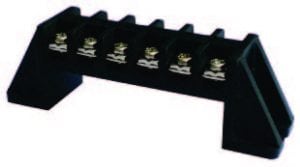 |
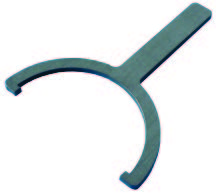 |
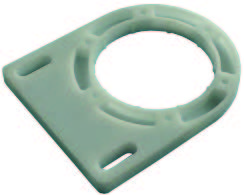 |
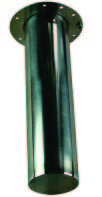 |
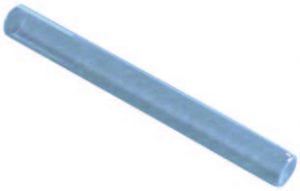 |
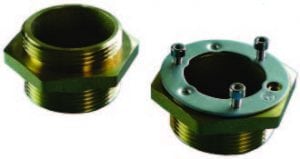 |
||
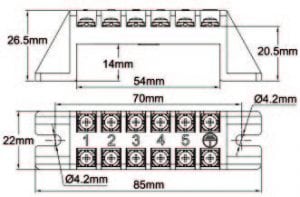 |
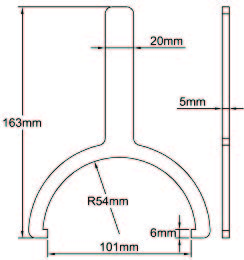 |
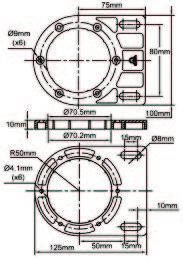 |
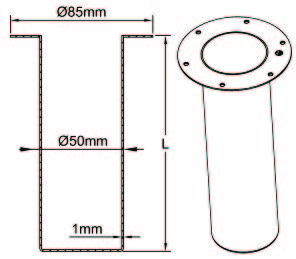 |
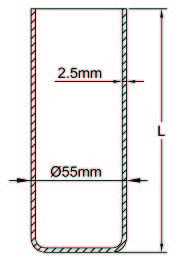 |
For full range and references of fittings, nuts and gaskets: See immersion heater accessories |
||
|
66Y3C6HW001 |
PP | 66Y3C6B1001Q | 316L | 66Y3C61605010xxx | 66Y3C6QU05525xxx | ||
|
PVDF |
66Y3C6B1001R |
316L-
Ti |
66Y3C6T605010xxx |
xxx=L in mm |
|||
| Ti | 66Y3CTI05010xxx | ||||||
| xxx=L in mm | |||||||
3D models are available on request under .stp format
Downloads
Related products
Technical informations associated to this product
-
Brass fittings and threaded accessories for immersion heaters
According to the Directive 2011/65/ dated June 8, 2011 (Rohs), copper alloys are allowed to have a maximum of 4% by weight of lead as an alloying element. -
Electrical protection classes
The housings are designed to protect electrical equipment located inside. This protection must be considered in the electrical and environmental angles.) -
Main properties of plastic raw materials used for enclosures
The classic housings, with only 5 sides and a lid, require a long and costly layout, most of the time ignoring the application needs: security, fire resistance, water penetration, shocks, UV, temperature, etc. -
Guide for immersion heater selection
Figures provided in this section are results of tests made in our laboratory. Charts were smoothened by computer, and are given for specified power and for information only.

